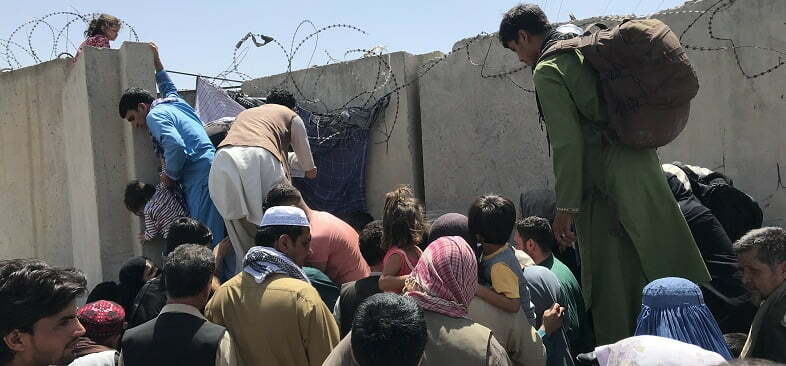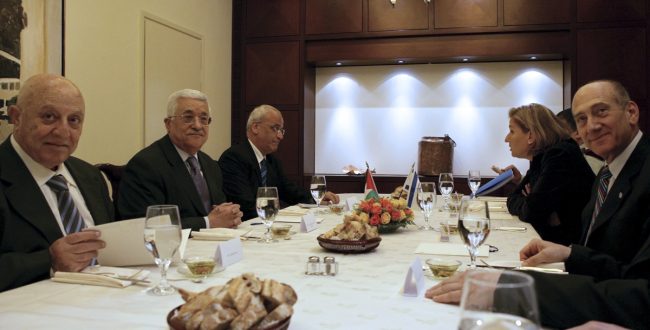On August 15, 2021, the Taliban completed its takeover of Afghanistan. The organization's meteoric return to full control of the country led to the urgent evacuation of foreign missions, and the hasty escape of President Ashraf Ghani from the country, as well as the heads of the army, and the ruling elite. Pictures of U.S. Marine Corps helicopters evacuating embassy staff from the capital Kabul reminded many of the evacuation photos of the U.S. embassy in Saigon in 1975, and the 1979 American hostage crisis in Tehran following Khomeini's revolution. However, despite the relative similarity of the pictures, it seems that the Taliban's return to power is fundamentally different than the events of the first era of the organization's rule (1996-2001). This time it was a combination of inter-Afghani politics and interests as well as those of the great powers that paved the way for the Taliban’s return to power.
In February 2020, under the leadership of President Trump, the United States signed an agreement with the Taliban. Under the agreement, the United States undertook to withdraw its forces from the country, and in return the organization promised not to act against the United States from within Afghanistan. It is interesting to note that in the agreement the organization is defined as "the Islamic Emirate of Afghanistan, not recognized as a state by the United States, and known as the Taliban." This agreement in effect gave American legitimacy to a political entity in competition with a government. Since the signing, the organization has been careful not to harm American targets even as it continued to fight the central government and the Afghan army, which were established under American auspices, and with American funding. The signing of the agreement allowed the United States to end its military presence in the country without unilaterally leaving it (a parallel and separate agreement was also signed with the elected government). From the Taliban’s perspective, the agreement presented the organization as the main factor responsible for the United States’ withdrawal, thus garnering support at home as well as abroad.
But the American story, for all its importance, is only one side of the complex processes that have taken place in recent years among the Taliban political leadership and Afghanistan's powerful neighbors: Russia, China, and Iran.
The Russian Federation has a long and painful history of military involvement in Afghanistan. Some would even argue that its military defeat at the hands of the Mujahideen (which received funding and weapons from the United States) and its withdrawal from Afghanistan in 1989 was one of the causes of the disintegration of the Soviet union. The Taliban's seizure of power in 1996 was the cause of much concern in the Muslim republics of the former Soviet union, which had disintegrated a few years earlier, and led to the reinforcement of Russian forces stationed along Afghanistan's border with Tajikistan. The US invasion of Afghanistan and the defeat of the Taliban in 2001 brought a sigh of relief, even in Russia. However the increasing tension between the Putin administration and the United States led Russia to initiate contact with Taliban as early as 2007 and, according to the United States, (denied by Russia) they also provided the organization with fire arms. At the same time, Russia worked resolutely to remove the US military logistics bases in Uzbekistan and Kyrgyzstan , and in 2015 had closed down the logistical transition of NATO forces through those bases.
As far as Russia is concerned, the withdrawal of the US military from Afghanistan is a culmination of a long process that began more than a decade ago. Following the Taliban takeover of Afghanistan's northern provinces and the Tajikistan and Uzbekistan border crossings earlier this month, Russian Defense Minister Sergei Shoigu declared that under the agreement between Russia and the Taliban the organization is obliged not to act against Afghanistan's neighbors. In other words, the return of the Taliban to power and the re-establishment of the Islamic Emirate on the border of the Central Asian Republics reinforces the need for political and military assistance from Russia – which has returned to being the only power with a presence in the region that enjoys significant ties with all parties.
China, Afghanistan's neighboring power and a strong player in the Afghan economy, initially expressed concern regarding the expected instability in Afghanistan. China, which for many years has waged a stubborn battle against what it defines as Uighur Muslim extremists and terrorist groups in its territory, and previously accused Afghanistan of hosting terrorist nests in its territory, recently received assurances from the Taliban that it would not allow anti-Chinese organizations to operate from their territory. The Taliban even promised to fight against the East Turkmen Islamic Movement, which was recognized by the Taliban as a terrorist organization, alongside China, while blaming the United States for its cultivation. In return, China announced its readiness to consider recognizing the Taliban as a sovereign power in Afghanistan should it seize power in Kabul. As a result of these understandings, the embassy staffs of China and Russia were not evacuated from Kabul and the Taliban announced that it was the guarantor of their security.
Back in 1998, during the previous Taliban regime in Afghanistan, Iran almost invaded Afghanistan after the Taliban attacked Shiite minorities and even killed several Iranian diplomats. This year, Iran hosted reconciliation talks between the Taliban and the Afghan government, during which it praised the organization for its success in pushing the foreign forces out of Afghanistan. The very arrival of the Taliban delegation in Tehran indicates a parallel change on the part of the organization in its attitude towards Iran.
An analysis of the Taliban's conduct in the international arena from the signing of the agreement with the United States, the understandings with Russia and China, to the channels of dialogue with Iran, shows the organization's political maturity and the understanding among its leaders that it can no longer rely on Pakistan's support alone. Although the organization's forces waged war against the central government in Afghanistan , they had sufficient international guarantees for their survival before the takeover of Kabul. In other words, though the Taliban remains an organization representing a militant and violent Islamic faction, its political wing is showing increasing sophistication in international policy and local politics. This explains their rapid takeover with almost no resistance on ground.
The economic and social instability in Afghanistan is the main challenge facing the Taliban for the time being, and it is directly affecting the neighboring republics of Central Asia. In recent years, Uzbekistan, led by its new president, Shavkat Mirziyoev, has been trying to maintain economic cooperation with its neighbor Afghanistan. At the end of July, a conference on future economic development in the fields of trade and communications between South and Central Asia was held in Tashkent, the capital of Uzbekistan. During the conference, which was attended by the presidents of all the countries in the region (including the ousted Afghan President Ashraf Ghani. This is apparently the last international conference he attended), many economic projects aimed at developing the region's economies were presented; Afghanistan, as a key liaison country, planned to play an important role in the development of the region. Now the future of these ambitious ventures under Taliban rule is unclear, and the conditions for control over the country are challenging. The Taliban administration will face a complex reality of a ruined economy, geographical and ethnic diversity, local armed militias, corruption, crime and drug trafficking organizations. However, there is no doubt that the organization has an interest in rehabilitating the country, strengthening its economy, and returning refugees to their homes. The regional alliances and agreements reached by Taliban leaders before seizing power may help them in this difficult task. In this framework the Taliban welcomed Chinese participation in development projects in Afghanistan and asked the Indian government to continue their undergoing infrastructure development projects. Their image from the past as a murderous terrorist organization is expected to undergo a facelift, but the degree of their desire for substantial changes, their success in doing so, and their control over rebellious factions and drug lords is yet to be seen.
















